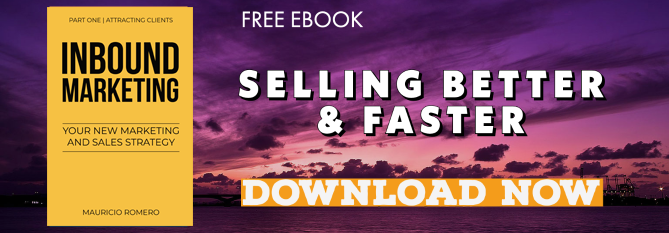In a previous article we talked about the importance of building trust in your clients in order to close sales online. Now let's talk in more detail about specific strategies to achieve it.

Building Trust
Gaining the trust of a stranger is a whole process, it doesn't happen overnight. At the beginning of any relationship, we first learn the basic information of the stranger, we then discover more and more details about him until, over time, we know everything or almost everything about this person and thus, have the tools to decide whether we can trust him or not.
The same happens in the Internet world. Although the relationship is virtual, the process is the same. Your clients visit your page for the first time and slowly advance towards the full knowledge of your company, your product or service. If after getting to know you, they think that you are the best option for them because they can trust you, then yes, you'd have finally earned their trust.
Now, stay alert, since you must do everything possible not just to earn their trust but to not lose it as well, even after the sale is closed. After all, a happy customer will turn into future recommendations and purchases (both theirs and those of their friends).
Were here then share with you:
3 Strategies to Build Trust in Your Clients Using Your Website
1. Share all the information that your clients need, according to the moment of purchase they're at. Nothing like full, relevant and open communication to generate trust. If you leave room for any gaps or doubts, you might begin to generate distrust: "Why won't they tell me how does it work or how much does it cost or how do I install it? What trick are they hiding from me?" might be what your customers think.
- Strategy to achieve it: have a content map and an editorial calendar that responds to the questions that each kind of buyer may have, according to his buying stage. In this way, you will not launch purposeless content, content without direction or any specific intention rather, you will share content that follows a whole strategy in order to approach your clients.
2. Give a follow-up to each of their questions with a personalized communication; emails, content according to their needs, immediate answers, even if they are automated. All this will help the client know that you are there for him, listening and responding, in other words, that you are reliable. Nothing builds trust better than knowing that the other party really commits.
- Strategy to achieve it: Use software to help you give a follow-up on each of your clients. When sales skyrocket, the customer database can grow exponentially, which is why we recommend having an appropriate software so you can track each one of them, one that:
- Keeps a record of the activities that each of them has had on your website
- Allows you to automate the answers and content that you send to them, according to their preferences
- Manages the sale stage at which each client is
- Is updated live, with each interaction that you have with a client
- Allows you to link these contacts to the specific salesperson that they'll be in touch with in order to define who is responsible for each client and which tasks are they responsible of as well
3. Offer content that invites clients to participate, to get involved with you. A client who only reads and reads but in the end, no matter how much he reads, is not getting in touch with you, he's not a client, he is a reader. We want to establish a communication with our visitors so that the purchase-sale relationship begins. This is how trust finally consolidates before the purchase takes place, establishing this bilateral communication relationship.
- Strategy to achieve it: Premium content. What is premium content? It's this content that has more in-depth information on the matter that interests your client and that's not available on your page for any visitor to read. In your page you have basic, firsthand information, but if your client wants to know more about a specific topic, you must offer something that captures his attention but that, in exchange for it, he must share his contact information so you can send it to him. In other words, you commit to email him that guide, that brochure or that e-book that interests him so much, but you need to have his address in order to do so. Once you do, your virtual sales-relationship begins.
An After-purchase Strategy?
Sure! and as we've mentioned before, once the sale is done, you need to maintain a relationship of trust with your clients. How can you get this done?
- Keep answering their questions, their emails
- Respond to them if something went wrong, repair it
- Email relevant content to them every once in a while, don't over do it and tire them
- Carry our customer satisfaction surveys and act accordingly to the answers you get
Digital Marketing
As you can see, publishing information on your website once and for all, is not a sales strategy rather, you are just sharing static information. This kind of lifeless information doesn't help you have a personal relationship with your customers.

On the other hand, a complete Digital Marketing strategy is the solution that better matches the new kind of online sales, based on attracting your customers with the dynamic content that you offer and accompanying them throughout their purchasing process until the sale closes and even after closing it.
If you want to know more about this kind of Marketing, contact us or download our e-book:

 Paulina Romero H
Paulina Romero H